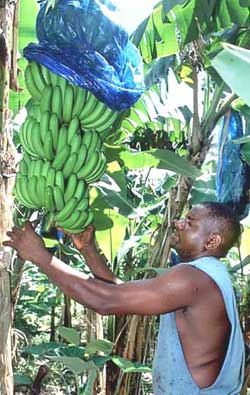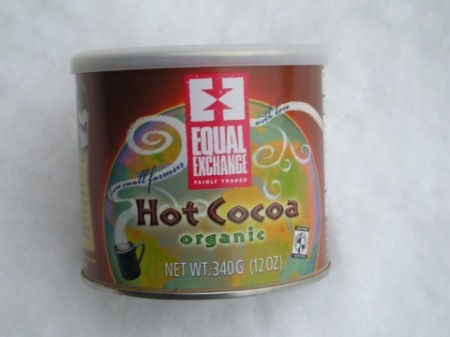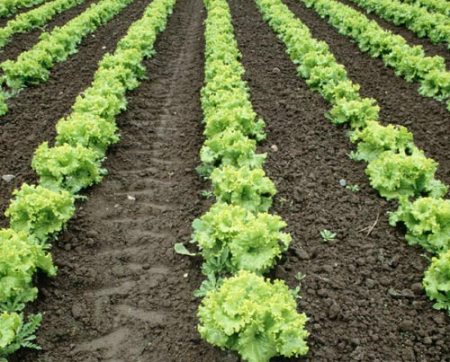Have you ever noticed that the oddest things in life conspire to transform you on the deepest level? They don’t all happen at once either. They can occur over long periods in small trivial ways until one day you say, “Hey I need to pay attention and take action.” I’ve been enveloped in the church and its culture all my life. I’ve known from the earliest age that Jesus cared for all peoples and had a special place for the poor and disenfranchised in his plan. But beyond giving to missions or supporting a child in a foreign country nothing changed how I lived. Until…
One Thanksgiving, when I was in college, I went to my aunt’s house for our big family meal. She had a book on the coffee table called Material World: A Global Family Portrait and I think I spent most of the day staring at the pictures and reading the stories there. It was a book of photos from all over the world of what the middle class looked like in various countries. Describing their valuables, showing what they ate, even pictures of what the bathrooms looked like. It was fascinating! I think it showed me in a way words never could the inequities that exist, especially when I came to a picture of middle class Americans surrounded by more stuff than most of the African countries combined proudly holding up the family Bible.
and I think I spent most of the day staring at the pictures and reading the stories there. It was a book of photos from all over the world of what the middle class looked like in various countries. Describing their valuables, showing what they ate, even pictures of what the bathrooms looked like. It was fascinating! I think it showed me in a way words never could the inequities that exist, especially when I came to a picture of middle class Americans surrounded by more stuff than most of the African countries combined proudly holding up the family Bible.
When I married, my husband, knowing I was trying to come up with new ideas for cooking, gave me a cookbook entitled, More-With-Less Cookbook (World Community Cookbook)
. I’ve never read a cookbook before but I definitely sat down with that one several nights in a row. I read about how our food choices affect others and how living more simply can free us to do even more in the fight against the inequities that exist. This cookbook led me to read several different books on the issue of simple living including Richard Foster’s book, Freedom of Simplicity: Finding Harmony in a Complex World
.
It hit me finally that I either needed to start making major changes in my daily life or consciously decide to ignore all I was learning. Living for Christ and his values needed to affect everything that touched who I was, from what I ate, what clothes I wore, and how my husband and I raised our daughter. There are so many things I could share here, but I’ve chosen a few simple areas that have had far reaching consequences.
I’m from Seattle and I think by blood a coffee drinker. My Puerto Rican husband has been drinking café con leche at breakfast since the age of three. So when I say we enjoy good coffee I think you can understand what I mean. I can’t remember when the issue of Fair Trade coffee caught my attention, but this quote sums up some of what I read about back then:
“We in Latin America have a task before us which is staggering to the imagination- illiteracy to be eliminated, disease to be wiped out, good health to be restored, a sound program of nutrition to be worked out for millions of people. The key to all of this…is an equitable price for coffee. If they could secure a fair price they could work a “miracle” similar to the thriving United States. If coffee cannot receive an equitable price, then you cast these millions of persons loose to drift in a perilous sea of poverty and privation, subject to every chilling wind, every subversive blast.”
-Andres Uribe (former chairman of the Pan American Coffee Bureau)

This posed a problem for me. We needed coffee didn’t we? We were living on a limited income weren’t we? I couldn’t afford to buy specialty coffees from an on-line source and stick to our food budget. After getting frustrated and ranting and raving for a time I came to the realization that coffee was a luxury and I couldn’t justify taking food out of people’s mouths for my convenience. So while in Puerto Rico my husband and I bought locally grown coffee and since we’ve moved back to the States have stuck with Fair Trade certified coffee.
The second food related item that was brought to my attention while reading More-With-Less Cookbook (World Community Cookbook) , was bananas. Think bananas aren’t that big of a consideration? According the website www.fairtradetoronto.com, “Very few bananas are grown in North America, yet North Americans are major consumers of bananas. In fact, bananas are amongst the top five most important food commodities in world trade.” How does this affect the workers?
, was bananas. Think bananas aren’t that big of a consideration? According the website www.fairtradetoronto.com, “Very few bananas are grown in North America, yet North Americans are major consumers of bananas. In fact, bananas are amongst the top five most important food commodities in world trade.” How does this affect the workers?
“The banana market is controlled by five large corporations – Chiquita (25%), Dole (25%), Del Monte (15%), Noboa (11%) and Fyffes (8%). Most bananas are grown on huge plantations, controlled by these corporate giants. …the current legal minimum price paid to a producer for a box of bananas in Ecuador is $2.90. That same box can then sell in a British supermarket for about $25.00, with the supermarket taking more than a 40% share of the final price. Banana producers are constantly pressured to produce at even lower prices, pushing down wage levels and working conditions in plantations in an attempt to remain ‘competitive’.”

Whereas fair trade coffee is fairly easy to find (at least in the Northwest) at the local supermarket or coffee shop, fair trade bananas are much more difficult. They have only been certified through TransFair USA (a fair trade labeling organization in the US) since 2004 and aren’t regularly available in major supermarkets. What we’ve decided on this issue is to simply not buy bananas. There may be other ways but for us this seems to be the right choice. (It really made my husband appreciate the local bananas when he was home visiting his family!)
You wouldn’t think camping would bring up another food and justice issue would you? But there I was just this August standing at Whole Foods Market staring at the hot chocolate section for about 15 minutes debating. Fair trade? Conventional? It was the end of the month and we were short on funds, just enough to go camping for our first family vacation ever. Would I spend the extra money to buy a fair trade brand or go the cheaper route? I ended up buying the fair trade hot chocolate from Equal Exchange and we really enjoyed it. It was a much better quality chocolate and in researching this article I accessed their website for some great background information.

I’ve shared with you a small portion of my family’s journey and some of the actions we’ve felt compelled to take because of what we believe. Does this move you to action? Or is a step in the process? If you feel compelled to take some steps toward a more just way of shopping and eating I have a few tips for you:
-
Take a good look at what you really believe about the poor and what Jesus has to say about them. See if your actions match up to his teachings.
-
Read, read, read! Once you start researching a bit you won’t believe how much information there is out there.
-
Pick one or two areas to start with. Don’t let yourself get frustrated. (If you’re doing it right you’ll be dealing with these issues for the rest of your life.)
You may think food is not all that spiritual of a topic, but along with clothing and shelter it’s an elemental need we share with every other person on the planet. These areas of our life directly or indirectly take more time out of our schedule than all other things combined. If we can’t find spiritual meaning here then God is but scarcely among us. Making changes in how we deal with issues of food is essential to our Christian faith. It is included in the great commandment of Jesus when he told us to love our neighbor as ourselves.



 Posted by riccikilmer
Posted by riccikilmer 







